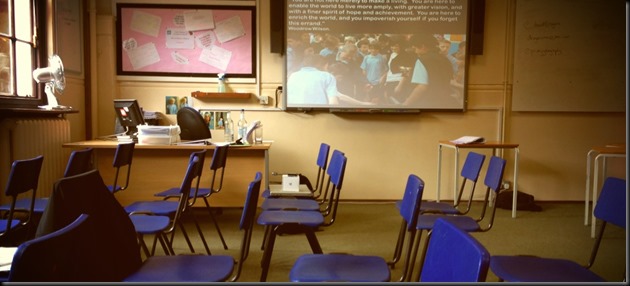
This is the first of six posts reflecting upon the Teaching, Learning and Assessment Conference held at Berkhamsted School. This post will provide an overview of my talk focused on Geography: Inspirational Geography.
Before I go too far, I must say that the proceeding geography talks by Carmel Greene and John Sayers were the best geography specific workshops that I have attended in a long while. They were packed with practical ideas that were underpinned with sound theory and research, a key feature to the success of the conference overall. But more on that later.
It was with some apprehension that I followed these two speakers, making the finishing touches to what I wanted to talk about during the conference. Although this may seem unorganised, in my defence I take this approach as it means it’s possible to weave the themes of the keynote speakers and other workshops I have seen during the day. Thank you to the kind words both face-to-face and through Twitter, and I’m pleased that I even received my first international heckle from Pakistan!
The slides for the talk are below, but all of the ideas can be found on this blog. Going for a title such as ‘Inspirational Geography’ is always a risk, but here’s the breakdown of the session. The problem that we wanted to solve was an inadequate Geography Department and compliant, yet passive learners. Most links will take you to other places on this blog, so head to these for more details as I wanted to keep this as concise as possible.
The session started with participants finding that the chairs were all facing the window instead of the presentation. Two reasons behind this. The first is that Geography happens outside classrooms and the second was to see what would happen. When what we expect to happen doesn’t, all sorts of interesting behaviours can be developed.

1. Geography Leadership
We are all leaders, however the secret to any of Priory Geography's successes has been a co-created core vision. By co-created I mean created by students and the teachers. This is revisited and developed and shared as a video. Here is 2012’s edition. The second technique is to grab up to three artefacts that represent what you want geography to be at your school to be. See what we came up with here. What artefacts would represent your geography?
2. (un)planning
The main thrust of the session was the art of (un)planning. By (un)planning I mean, throw out the pre-set proforma and create lesson in which you don’t know what the final outcome will be. Students sitting in lessons that have a pre-destined end point may as well Google the knowledge that you’re aiming to impart. (un)planning links to Alistair Smith’s call during the opening keynote to ignore the Ofsted Whisperers.
I remember Ollie Bray suggesting using the Bing start page in lessons. Why not use the image at the start of every lesson to encourage and develop geographical questioning and ideas. For example, at the moment, every Year 10 lessons starts with the Bing Start page and them suggesting which jobs would be linked to its subject. Students then need to classify these jobs and suggest how they link together with globaliastion. Here’s today’s image:

While you’re there, find out how to access the OS layer of the entire UK. For free.
Go on, get (un)planning!
3. The ideas
There were five ideas that I shared, some of which were low tech and others not so. Please remember that Priory School is in a country and situation where mobile devices and technology is available, however we are far far from having everything that we need. It;s about compromise, hacking and creativity. Follow the links to the original posts.
a) Geography / EAL mashup – thanks to Sam Atkins.
b) Does Iceland Exist? And image Thunks.
c) Geocaching – thanks to Sam Atkins and Jo Debens. This is a story in aiming high and getting projects to reach across the whole curriculum.
d) Developing literacy at GCSE.
e) RSA Style animations – thanks to Noel Jenkins for the initial inspiration and links.
4. The summing up
a) Ofsted does not kill serendipity and teachers should be driving the curriculum and pedagogy. Documents are never going to be creative, get over it.
b) Be innovative and don’t use something just off the shelf. These ideas will only work if adapted to your context.
c) Creativity doesn’t always equal technology.
d) Start with and empty sheet of paper (or however you plan) and not a blank PPT / Prezi etc.. Lessons should be underpinned by sound learning objectives and outcomes and then resourced.
e) Take pedagogic risks.
f) Use what you have but better. This includes textbooks and, most importantly, your existing networks from school level to international through Twitter.
g) Never be afraid to stir up naughtiness.
Comments
Post a Comment